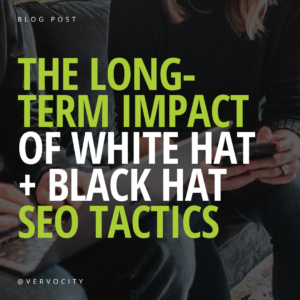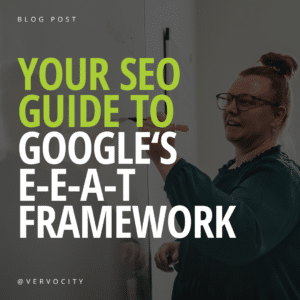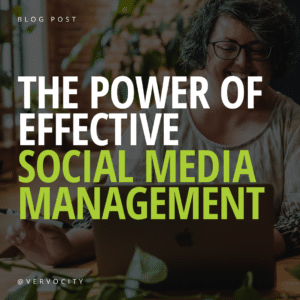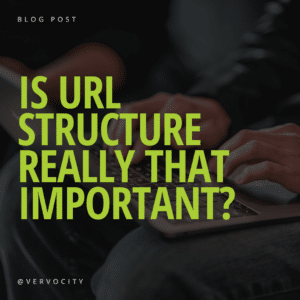ChatGPT (as it relates to Google Search) hit like a meteor recently. Many people are claiming that it could make Google irrelevant unless Google can quickly develop a competitor. I’ve been playing around with the www.you.com search function (a browser extension you can add from the previous link), which uses ChatGPT as a search engine, and here are my thoughts on common questions and what the search function is offering right now:
This is not what I am used to getting in my search results.
I have used Google so long and so frequently that I’ve gotten used to where things will be placed, how the search results page will look, and how the map, call, and directions functions work. Suffice it to say, they moved my cheese.
How is this stuff being ranked?
I am a little bit of an expert in search engine optimization and how Google ranks its search results organically. I trust the top result is going to be my best bet if I have performed my search correctly because that’s what Google intends. Google ranks results based on the quality of content and previous engagement.
I asked ChatGPT how it ranks search results and got the following answer:
“ChatGPT uses a variety of ranking algorithms to determine the order in which search results appear. These algorithms take into account a variety of factors, such as the relevance of the content to the query, the user’s location and browsing history, and the quality of the content. Additionally, ChatGPT also looks at how often a website is linked to other websites, as well as how quickly the website loads. By taking all of these factors into account, ChatGPT is able to determine which websites should appear higher in the search results.”
In a nutshell, it wants to do the same thing as Google but it still has learning to do to get the highest quality search results.
Will it just become a Google clone?
I don’t think so. The search engine has a page of search results which is basically what Google does. However, it also has an “ask me” button on the right side of the screen that will give you a conversational answer. In the future, I see the search results page being used to find a business or a service, and the “ask me” function to be used for more open-ended questions.
I asked ChatGPT what it’s purpose was as a search engine and it gave me the following answer:
“The purpose of a ChatGPT search engine is to enable users to find relevant information quickly and easily. ChatGPT is a language model that can generate human-like text based on the input it receives. By using this technology, a search engine can provide more accurate and natural-sounding results for users. Additionally, ChatGPT can understand a wide range of topics and provide in-depth explanations and discussions on them.”
It appears that it ultimately wants to chat with you about your queries instead of offering a static search engine result page (SERP).
How will I find a good recipe?
I was trying to think of a search that would work for both the SERP page as well as the “ask me” function of ChatGPT. So I asked “ask me” for a good bread recipe. It gave me a biscuit recipe of some sort…so I had to rephrase my question to include yeast bread recipes, and I got a proper result. There are no reviews associated with its “ask me” function, but the SERP page for the same query does offer the typical results with reviews that you would see in Google.
What’s the latest from Google?
The latest information we have in regards to a Google answer to ChatGPT is that they have called in their original founders to specifically work on their answer to this artificial intelligence (AI) challenge. They are downright scrambling to get something spun up to compete. This is a major disruptor and could change the search engine hierarchy.
What’s the latest from Microsoft?
Microsoft is all over ChatGPT like flies on you-know-what and is set to market ChatGPT as available through Bing starting in March 2023. Microsoft has failed miserably against Google in the search engine world. Becoming first-to-market with this new technology that is changing how humans retrieve information will be huge by sending a large number of people to Bing, even if it’s only on a contextual basis. Rumor also has it that Microsoft wants to embed ChatGPT in its office suite of products. Remember Clippy? Clippy is back, with a vengeance.
What do digital marketers need to do?
As a marketing agency that spends a lot of time and money on Google Ads in all their forms, what we need to be is nimble. If Google can’t answer the ChatGPT challenge, they will see business siphoned off to other search engines and we need to be prepared for that.
Microsoft (which owns Bing) offers an ads platform that will allow you to pull in parameters from your Google Ads console. Although ads are not yet served on ChatGPT, I think it’s safe to assume that they will need to figure out a revenue stream quickly. Estimates say it costs $100K a day to run ChatGPT with no fees being charged or ads being served at this point. We need to keep an eye on current campaign performance in Google Ads, where impressions are coming from in Google Analytics, and be prepared to move money to Microsoft if it becomes financially advantageous.
What do search engine users need to do?
As a user, this will take a shift in thought when it comes to how you query. If you like how Google currently functions and aren’t interested in AI answers or how any of it looks or functions – feel free to ignore it (for as long as you can)! If you’re interested in how the AI works, start playing around with it now and getting the feel for how your SERP page will look.
ChatGPT does use keywords but with the “ask me” function, if you ask your question properly, you won’t have to click into any websites to get answers. ChatGPT gives you a conversational summary of all the information it could find on the internet that it found pertinent based on your question. It could be a major time saver and a huge step forward for human/AI interface.
In conclusion, ChatGPT is here to stay.
Digital marketing professionals have to monitor changes that might affect how we do our work and be ready to adjust to those changes. Teachers are already dealing with content written by ChatGPT in essays and on tests, and like the calculator, they found a way to still do their job using the new technology. We can do the same!
P.S. I asked ChatGPT to say goodbye to its friends (you) and here is what it said:
“Saying goodbye to my friends is always hard, but I know it’s necessary at times. I’ll take the time to tell them how much I appreciate them and the time we’ve shared together. I’ll also take the time to remind them that even though we may be far apart, our friendship will last forever.”











